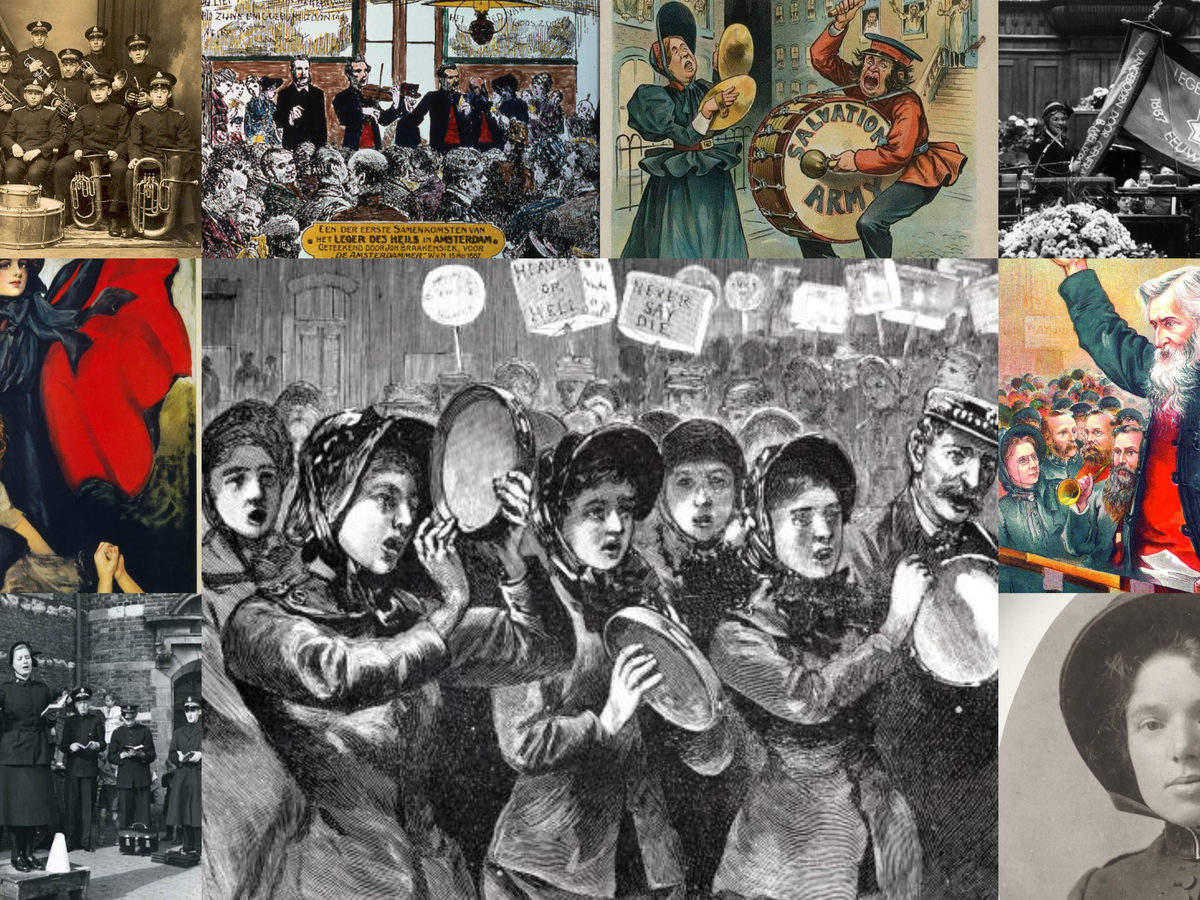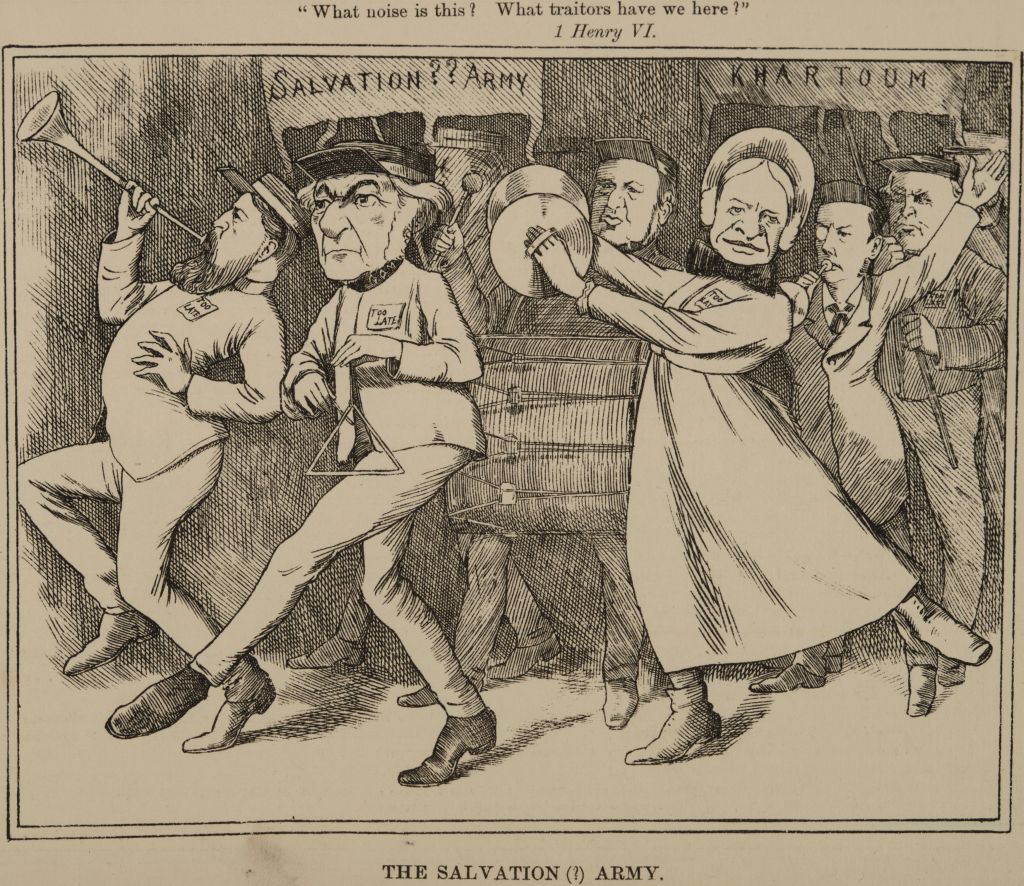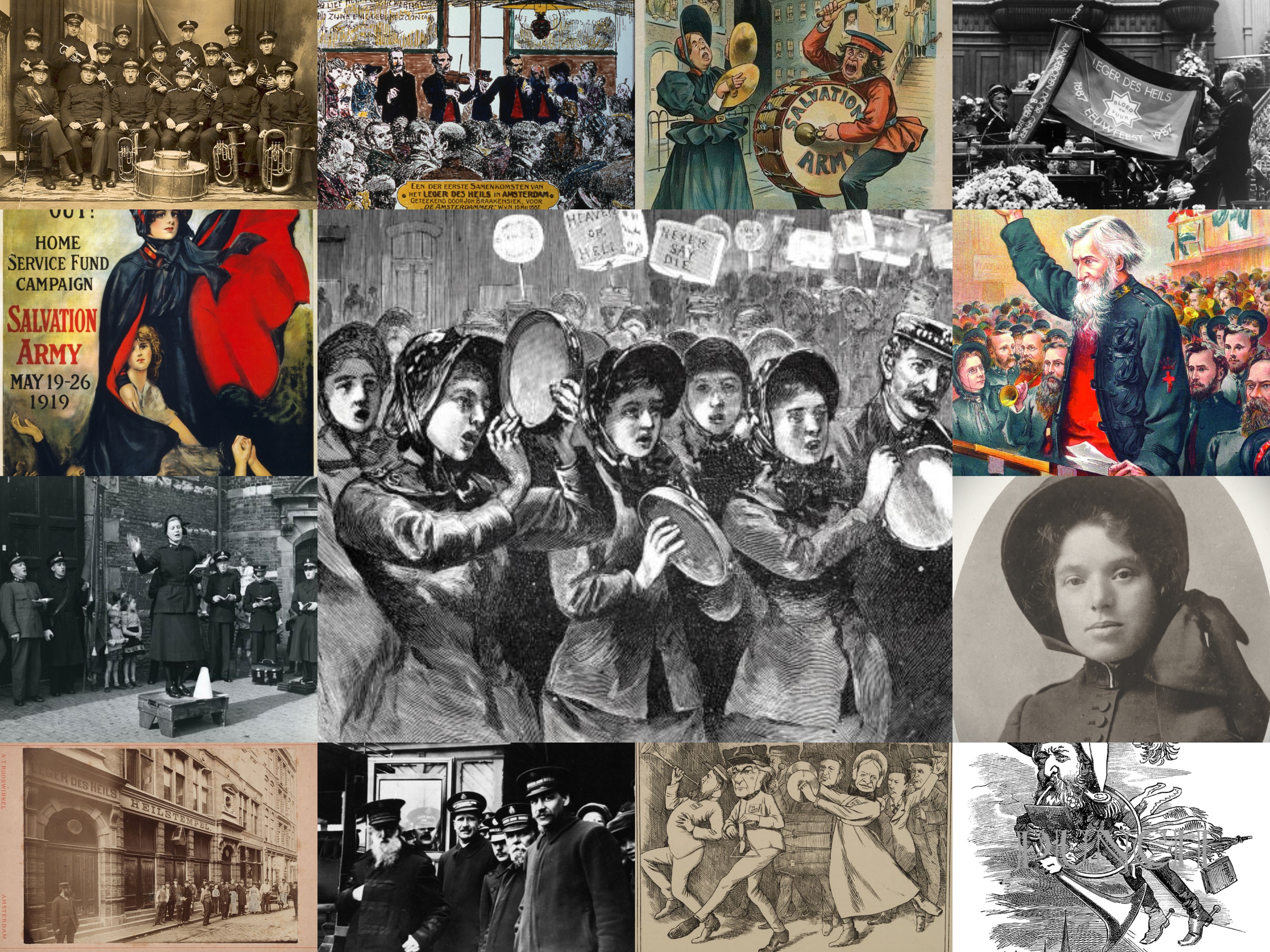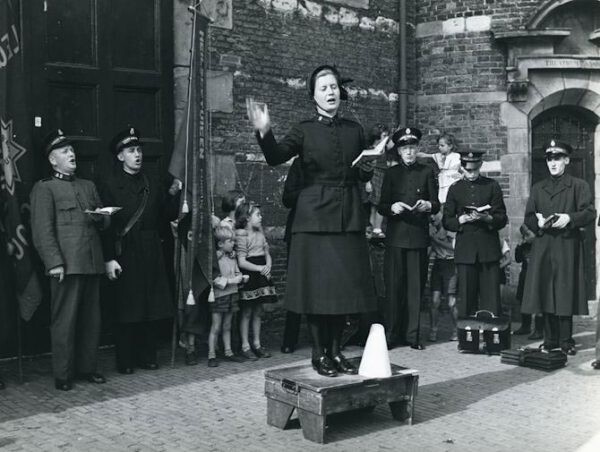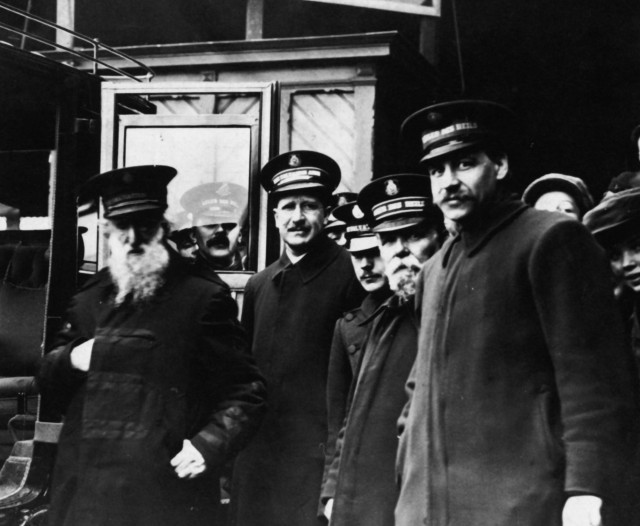- M
- F
Op de hoogte blijven? Word lid van onze Facebook-pagina!
English translation available at the bottom of this page
Welkom op onze donatiepagina! Wij zijn vader Nico en zoon Stijn van der Woude en wij doen een promotieonderzoek aan Tilburg University, naar de start van het Leger des Heils in Nederland. De titel is: De sprong overzee. De interne en externe communicatiestrategieën bij de start van het Leger des Heils in Nederland (1879-1900).
Waarom dit onderzoek? De kerstpot en Majoor Bosshardt: bijna iedere Nederlander kent het Leger des Heils. De organisatie is tegenwoordig wereldwijd in 134 landen actief, maar onderzoek ernaar is schaars, zeker in Nederland. Dat is bijzonder, want het Leger speelt eind 19de eeuw een belangrijke rol bij de sociale kwestie en de vrouwengeschiedenis. Wij willen de succesvolle, maar ook roerige start van het Leger des Heils in Nederland in kaart brengen.
In 1887 begint de organisatie in Amsterdam, maar in de jaren daarvoor is de explosieve start in Engeland en omstreken bij Nederlanders al bekend via de media. In Londen en omstreken wordt The Salvation Army snel populair met een voor die tijd schokkende godsdienst: voor de gewone man, in eenvoudige taal, met prekende vrouwen. Het succes roept ook felle tegenstand op. Heilssoldaten krijgen te maken met gewelddadige bendes (Skeleton Armies), rechtszaken en opstootjes. Het lijkt er echter ook op, dat de salvationisten die media-aandacht soms bewust opzoeken. De berichtgeving rond de explosieve start overzee zorgt ervoor dat de organisatie bij de start in Nederland met wantrouwen bekeken wordt en ook hier zijn opstootjes. Een lastige start dus, maar geleidelijk groeit de acceptatie. Dit komt mede door het goede werk waar Nederlanders het Leger des Heils nog steeds van kennen. Wij denken echter dat de communicatie van de organisatie ook belangrijk is bij het vestigingssucces. Het Leger maakt gebruik van massamedia en vernieuwende marketing- en communicatietechnieken en de strategische inzet van (Leger)beroemdheden.
In ons onderzoek is ook uitgebreid aandacht voor de rol en invloed van vrouwen. Het Leger des Heils is voor die tijd namelijk ongekend geëmancipeerd: de helft van alle officieren bestaat uit vrouwen. Daarnaast maken wij gebruik van citizen science: geïnteresseerde burgers dragen op diverse manieren concreet bij aan het onderzoek en ze krijgen daar kennis en ervaring voor terug. Zo draagt het onderzoek bij aan open wetenschap!
Waarom crowdfunding? Een grote uitdaging is dat wij dit onderzoek doen als zogenaamde buitenpromovendi. Nico is docent Nederlands en debattrainer en Stijn is predikant. Vrijwel alles gebeurt naast ons werk én we moeten het zelf betalen. Wetenschappelijk onderzoek doen kost echter geld en daarom hebben wij jullie nodig! Zo moeten we voor het onderzoek naar Londen om archiefonderzoek te doen in het Salvation Army International Heritage Centre en we hebben specialistische software en dure boeken nodig.
Waarom bijdragen? Het Leger des Heils is een organisatie die het kerkelijke landschap verandert en die helpt bij maatschappelijke problemen. Tegenwoordig is het een grote en bekende religieuze en maatschappelijke organisatie en een grote fondsenwerver, maar eigenlijk weten we er niet zo heel veel van. Help bij dit onderzoek, doneer!
We doen graag wat terug. We houden deelnemers op de hoogte van de vorderingen en de inzichten van het onderzoek naar een organisatie die zich in die roerige begindagen zelf omschrijft als ‘Red-Hot’.
English translation:
Want to stay up to date? Join our Facebook page!
Welcome to our donation page! We are father Nico and son Stijn van der Woudeand we are doing a PhD at Tilburg University, on the start of the Salvation Army in the Netherlands. The title is: The leap overseas. Internal and external communication strategies at the start of the Salvation Army in the Netherlands (1879-1900).
Why this study? Nowadays almost every Dutch person knows the Salvation Army. Today, the organisation is active in 134 countries worldwide, but research on it is scarce, especially in the Netherlands. This is unusual, as the Army plays an important role in the social question and women's history in the late 19th century. We want to chart the successful, but also turbulent start of the Salvation Army in the Netherlands.
In 1887, the organisation begins in Amsterdam, but in the years before, the explosive start in England and the surrounding area is already known to Dutch people through the media. In London and surrounding areas, The Salvation Army quickly became popular with a religion that was shocking for the time: for the common man, in simple language, with preaching women. Its success also provokes fierce opposition. Salvation Army soldiers face violent gangs (Skeleton Armies), lawsuits and riots. It also seems, however, that Salvationists sometimes deliberately seek this media attention. The coverage surrounding the explosive start overseas causes the organisation to be viewed with distrust at the start in the Netherlands, and there are riots here too. So a difficult start, but gradually acceptance is growing. This is partly due to the good work the Dutch still know the Salvation Army for. However, we think that the organisation's communication is also important in settlement success. The Army uses mass media and innovative marketing and communication techniques and the strategic use of (Army) celebrities.
Our research also pays extensive attention to the role and influence of women, as the Salvation Army is unprecedentedly emancipated for its time: half of its officers are women. We also make use of citizen science: interested citizens contribute concretely to the research in various ways and they receive knowledge and experience in return. In this way, the research contributes to open science!
Why crowdfunding? A big challenge is that we are doing this research as so-called outside PhD students. Nico is a Dutch teacher and debate trainer and Stijn is a pastor. Pretty much everything happens alongside our work ánd we have to pay for it ourselves.
However, doing scientific research costs money, which is why we need you! For example, the research requires us to go to London to do archival research at the Salvation Army International Heritage Centre and we need specialist software and expensive books.
Why contribute? The Salvation Army is an organisation that is changing the church landscape and helping with social problems. Today it is a large and well-known religious and social organisation and a major fundraiser, but we don't actually know that much about it. Help with this research, donate!
We like to give back. We will keep participants updated on the progress and insights of the research into an organisation that self-described itself as “Red-Hot” in those troubled early days.
Organizer
Stijn van der Woude
Organizer
